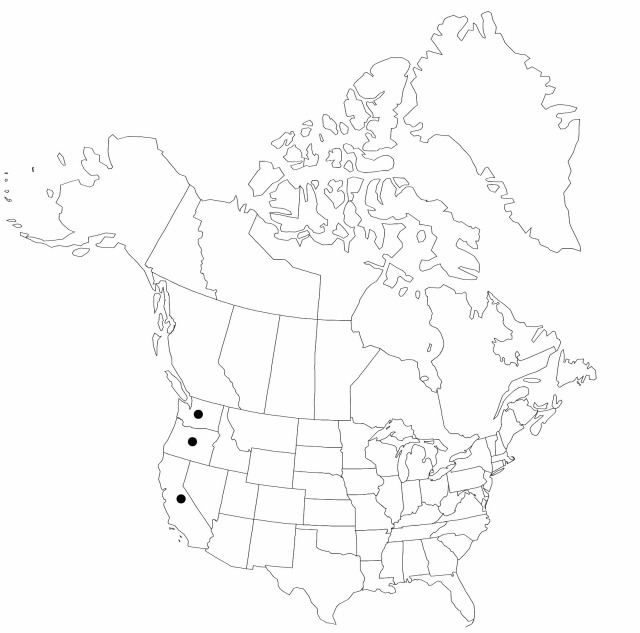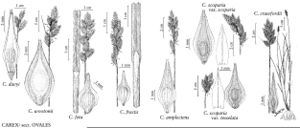Carex fracta
Erythea 8: 38. 1922.
Plants densely cespitose. Culms 60–115 cm. Leaves: sheaths adaxially green-veined at least in proximal 1/2, Y-shaped white-hyaline band extending at least 10 mm proximal to collar, firm, summits rounded, usually prolonged to 3–9 mm beyond collar; distal ligules (1.5–)3–13 mm; blades 4–5(–6) per fertile culm, 20–45 cm × 4–7 mm. Inflorescences proximal branches often bearing more than 1 spike, open or dense, green to pale gold, 3.5–8 cm × 10–16 mm; proximal internode 3–18 mm; 2d internode 3–9 mm; proximal bracts bristlelike, shorter than inflorescences or occasionally leaflike. Spikes 11–35, distant or aggregated, individually distinct or indistinct, lanceoloid to broadly ovoid, 10–18 × 5–7 mm, base acute to attenuate, apex rounded to tapered. Pistillate scales white-hyaline or gold, occasionally tinged brownish or green, with green to gold midstripe, lanceolate or ovate, (2.8–)3.6–4.5 mm, shorter or longer and narrower than perigynia, apex long-acuminate to awned. Perigynia ascending to spreading, green to gold, conspicuously 8–11-veined abaxially, conspicuously 5–8-veined adaxially, ovate, plano-convex, 2.9–4(–4.8) × 1–1.7 mm, 0.5 mm thick, margin flat, including wing 0.1–0.2(–0.3) mm wide, ciliate-serrulate at least distally; beak gold or white at tip, usually cylindric, sometimes falcate, unwinged, ± entire for 0.1–0.5 mm, abaxial suture usually inconspicuous, distance from beak tip to achene 1.3–2(–2.8) mm. Achenes ovate to elliptic, 1.3–1.6 × 0.8–1.2 mm, (0.3–)0.4–0.5 mm thick.
Phenology: Fruiting late spring–summer.
Habitat: Montane meadows, open forests, usually moist to dry soils
Elevation: 800–3300 m
Distribution

Calif., Oreg., Wash.
Discussion
A form of Carex fracta has larger perigynia (to 5.2 mm) that are distinctly flattened around the achene. The most extreme examples of the form occur in the San Bernardino Mountains of southern California.
Selected References
None.
